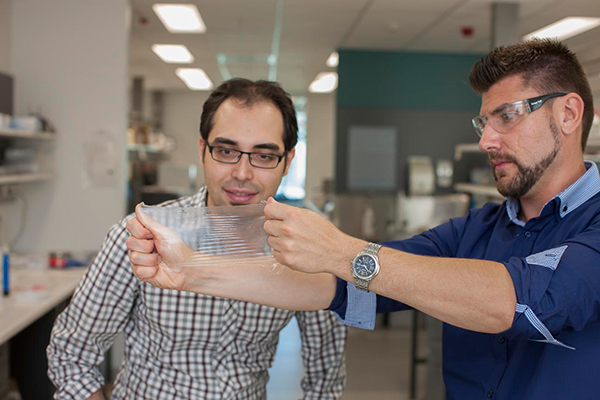
A whopping $100,000 has been awarded to University of Wollongong in Australia by Bill & Melinda Gates Foundation in order to develop a next generation condom that produces more sensation among men and encourages in preventing themselves from global health problem.
Researchers have invented an alternative to the traditional latex that has been used for making condoms. The alternative material is called tough hydrogel. Dr Robert Gorkin, a biomedical engineer who explains that the material is made in such a way that the wearer feels more like real skin. With the new design of condoms, scientists hope that a more natural feel will encourage more men to use protection and thereby prevent unwanted pregnancies and the global spread of Sexually Transmitted Diseases (STDs), especially in countries such as sub-Sahara Africa.
"It's really about us challenging our own perceptions, particularly when developing new technologies to be deployed in places like sub-Saharan Africa and southeast Asia. We are looking to have dialogue with people in those areas to look at social and cultural aspects for design that could be incorporated into eventual prototypes and products. We are also looking at manufacturing, regulation, distribution and other considerations, which will be critical for success in the regions." said Dr Gorkin, in a statement.
"The project could truly improve the lives of many. It's really about us challenging our own perceptions, particularly when developing new technologies to be deployed in places like sub-Saharan Africa and southeast Asia," Huffinton Post quoted Gorkin as saying.
The new designed condoms' skin-like material is what makes it over the present condoms made of latex.
Regardless of whether the thrust in pleasure that men link with wearing condom is real or imaginary, it definitely has a significant effect on whether to choose them or not, explained Gorkin.
"One of the problems with condoms in general is the perceived lack of sensation. We need to design condoms that men want to use because they increase sexual pleasure. If his new materials could offer more skin-like sensation, it could increase their uptake, Sydney Morning Herald quoted Dr Gorkin.
Drugs and lubricants can also be put together into the condom due to the structure of the material. Hydrogel material will also be biodegradable and will avoid any kind of allergies from latex, which around 5 to 10 percent of the population suffers.
Hydrogels are also used in contact lenses and are being studied for usability in wearable and implantable bionics.
With the fund provided by Gates Foundation, the team will examine different formulations of hydrogels to make condoms with the proper amount of elasticity and mechanical properties to prevent breakage.
Further, the team will confirm if the materials are completely safe and that they prevent conceptions or pregnancies and STDs.
"We are trying to be realistic about the project and it involves an open and frank discussion about wants and needs in this area," he said.
The reason behind avoiding use of condoms may be different among different cultures of people. The researchers believe that changing the perception would require investigations in understanding the needs of people and incorporating those into their new design.
Check out for the video of next generaltion hydrogel condom

















